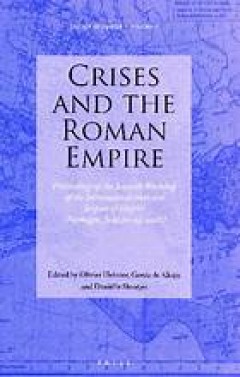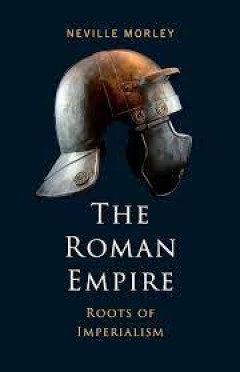Filter by

East and West in the Roman Empire of the Fourth Century
East and West in the Roman Empire of the Fourth Century examines the (dis)unity of the Roman Empire in the fourth century from different angles, in order to offer a broad perspective on the topic and avoid an overvaluation of the political division of the empire in 395. After a methodological key-paper on the concepts of unity, the other contributors elaborate on these notions from various geo…
- Edition
- -
- ISBN/ISSN
- 978-90-04-29193-5
- Collation
- oer.unej.ac.id
- Series Title
- Radboud Studies in Humanities, Volume: 5
- Call Number
- -

Early Christians Adapting to the Roman Empire Mutual Recognition
In Early Christians Adapting to the Roman Empire: Mutual Recognition Niko Huttunen challenges the interpretation of early Christian texts as anti-imperial documents. He presents examples of the positive relationship between early Christians and the Roman society. With the concept of “recognition” Huttunen describes a situation in which the parties can come to terms with each other without f…
- Edition
- -
- ISBN/ISSN
- 978-90-04-42824-9
- Collation
- oer.unej.ac.id
- Series Title
- Novum Testamentum, Supplements, Volume: 179
- Call Number
- -

Crises and the Roman Empire
This volume presents the proceedings of the seventh workshop of the international thematic network 'Impact of Empire', which concentrates on the history of the Roman Empire and brings together ancient historians, archaeologists, classicists and specialists on Roman law from some 30 European and North American universities. The seventh volume focuses on the impact that crises had on the developm…
- Edition
- -
- ISBN/ISSN
- 978-90-47-42090-3
- Collation
- oer.unej.ac.id
- Series Title
- Impact of Empire, Volume: 7
- Call Number
- -

Crises and the Roman Empire Proceedings of the Seventh Workshop of the Inter…
This volume presents the proceedings of the seventh workshop of the international thematic network 'Impact of Empire', which concentrates on the history of the Roman Empire and brings together ancient historians, archaeologists, classicists and specialists on Roman law from some 30 European and North American universities. The seventh volume focuses on the impact that crises had on the developm…
- Edition
- -
- ISBN/ISSN
- 978-90-04-16050-7
- Collation
- -
- Series Title
- Impact of Empire, Volume: 7
- Call Number
- -

The Roman Empire Roots of Imperialism
A millennium and a half after the end of the period of its unquestioned dominance, Rome remains a significant presence in western culture. This book explores what the empire meant to its subjects. The idea of Rome has long outlived the physical empire that gave it form, and now holds sway over vastly more people and a far greater geographical area than the Romans ever ruled. It continues to sha…
- Edition
- -
- ISBN/ISSN
- ;9781783715732
- Collation
- -
- Series Title
- -
- Call Number
- -
 Computer Science, Information & General Works
Computer Science, Information & General Works  Philosophy & Psychology
Philosophy & Psychology  Religion
Religion  Social Sciences
Social Sciences  Language
Language  Pure Science
Pure Science  Applied Sciences
Applied Sciences  Art & Recreation
Art & Recreation  Literature
Literature  History & Geography
History & Geography